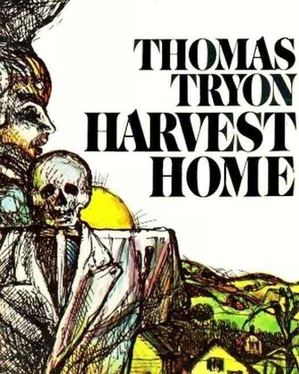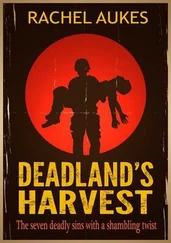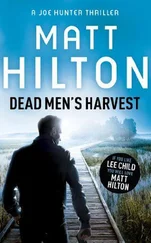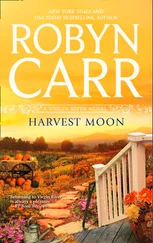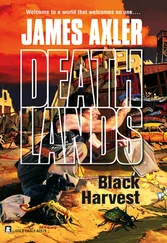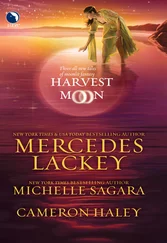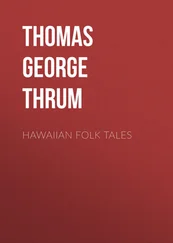Thomas Tryon - Harvest Home
Здесь есть возможность читать онлайн «Thomas Tryon - Harvest Home» весь текст электронной книги совершенно бесплатно (целиком полную версию без сокращений). В некоторых случаях можно слушать аудио, скачать через торрент в формате fb2 и присутствует краткое содержание. Жанр: Ужасы и Мистика, на английском языке. Описание произведения, (предисловие) а так же отзывы посетителей доступны на портале библиотеки ЛибКат.
- Название:Harvest Home
- Автор:
- Жанр:
- Год:неизвестен
- ISBN:нет данных
- Рейтинг книги:5 / 5. Голосов: 1
-
Избранное:Добавить в избранное
- Отзывы:
-
Ваша оценка:
- 100
- 1
- 2
- 3
- 4
- 5
Harvest Home: краткое содержание, описание и аннотация
Предлагаем к чтению аннотацию, описание, краткое содержание или предисловие (зависит от того, что написал сам автор книги «Harvest Home»). Если вы не нашли необходимую информацию о книге — напишите в комментариях, мы постараемся отыскать её.
For Ned and his family, Cornwall Coombe was to be come a place of ultimate horror.
Harvest Home — читать онлайн бесплатно полную книгу (весь текст) целиком
Ниже представлен текст книги, разбитый по страницам. Система сохранения места последней прочитанной страницы, позволяет с удобством читать онлайн бесплатно книгу «Harvest Home», без необходимости каждый раз заново искать на чём Вы остановились. Поставьте закладку, и сможете в любой момент перейти на страницу, на которой закончили чтение.
Интервал:
Закладка:
And we were being offered a share in it. We were finding ourselves accepted as in the natural order of things, and were treated accordingly. Several Sundays after the Agnes Fair, we went to church. Mr. Deming and the elders were by tradition awarded the choice seats-up front, with cushions. Also included in this preferential treatment were, I discovered, the Hookes, Justin and Sophie. The remainder of the worshipers were ranged, also traditionally, in accordance with their social position and wealth, wives and husbands together-their offspring suffering time-honored banishment to the galleries, boys on one side, girls on the other-while the choir was seated in the loft behind, with Mrs. Buxley to conduct and Maggie Dodd at the organ.
When the last bell peal had died away, we all rose, and while the minister entered from the vestibule in his black gown, Amys drew the doors shut, their closing timed to coincide precisely with Mr. Buxley’s arrival in the pulpit. Soon thereafter the bell ringer stationed himself at the rear of the boys’ gallery, where he maintained a long wooden rod, ready to tap to consciousness any dozing young fry.
Our family sat toward the rear, in the straight-backed, unpadded, and decidedly uncomfortable pew one of the elders had assigned us, and we joined with the others while Mr. Buxley led the opening prayer. We sang the Doxology to Maggie’s accompaniment. After that came the pastor’s church notes and items of general interest; next was a hymn, followed by another prayer, and then, at the indicated moment, amid clearing of throats, rustling of programs, creaking of pews, and dropping of hymnals into racks, the congregation settled itself for the ritual Sunday sermon.
Harken, the village of Cornwall Coombe. Meek and humble lamb though he might be Monday through Saturday, the Reverend Mr. Buxley on the Sabbath was a lion. This was his church, this his pulpit, this his flock. For his text he had selected Second Kings, Chapter 18, Verse 32: “Until I come and take you away to a land like your own land, a land of corn and wine, a land of bread and vineyards, a land of oil olive and of honey, that ye may live and not die…” Having read from the scripture, Mr. Buxley closed the Book, removed his glasses, placed his hands on either side of the pulpit as though for moral support, and launched into a lengthy peroration. His broad ministerial gestures described the bounty of the promised harvest and the warranted thankfulness for a full grain elevator, fuller pocketbooks, still fuller stomachs. But then, alas-arms falling in despair-with such bounty, what else was there in this land of plenty?
Sin.
Here it comes, I thought, hellfire and brimstone; shades of Henry Ward Beecher.
“… sinning in this land of corn and wine,” deplored Mr. Buxley, and though he spoke of Israel, who was there gathered before him who knew not he alluded to Cornwall Coombe? Sin lay in the hearts of those who, like Jezebel, were greedy beyond their just portion. But-finger directed heavenward-the great Lord Jehovah, nothing loath, had prophesied that Jezebel, unfortunate creature, should have her worldly flesh eaten of by dogs at the wall of Jezreel.
I reached for Beth’s hand, lying on the hymnal in her lap. She smiled at me under her lashes and I gave her a silent I love you . On this glorious Sunday in Cornwall Coombe, where was there to be found a luckier man than I? She nudged me, directing my attention to the boys’ gallery where Amys Penrose, leaning over the back pew, administered a smart rap on a head with the tip of his rod. Blinking, Worthy Pettinger sat up abruptly, awakening in time to learn of Jezebel getting her just deserts: having painted her face and done up her hair, the hussy was leaning out a window, whereupon three eunuchs were induced to throw her down. “‘Go see now this cursed woman,’” the minister quoted, “‘and bury her: for she is a king’s daughter…’”
My eyes lingered on Worthy’s saturnine features as he lent appropriate attention to Mr. Buxley. In the several weeks since the Agnes Fair, the boy had been in our employ, helping complete the terrace wall, setting in the skylight, plus seeing to the myriad other chores Beth found in unending succession. Day by day, we were becoming more dependent on his help and, in consequence, day by day fonder of him. He had proved to be bright, able, quick to learn, and willing to please. Still, observing him as he worked, I could see he was somehow troubled, but when I tried to draw him out, I discovered nothing to solve the mystery of the boy’s melancholy. In the back of my mind always was the memory of the fair:
The red hands of Missy Penrose printed on his cheeks; from sheep’s entrails, like an ancient seeress the half-wit child had chosen the boy. Her pale face staring in triumph at Worthy’s paler one: plainly he had not wished it. Children and sheep’s blood and oracular vision: the startling ways of Cornwall Coombe.
Still, though I had said nothing, I felt glad that no one had witnessed the scene behind the barn at Penance House, the black guts of the sheep, the red pointing finger.
I turned my head, looking up at the gallery where the village girls sat. Missy Penrose’s expression darkened as she saw my apprehensive glance, and her brow lifted in slight acknowledgment, as though between us we shared some un-Spoken and forbidden secret.
What bond could possibly connect us-me, Ned Constantine, and her, the village idiot? Why had I been singled out for her notice? And, having attracted it, why had I experienced that strange mixture of awe and dread? Why, in dreams, did I now see that accusing finger?
Was there some unplumbed depth in her make-up? Not a chance, I told myself. Missy Penrose wasn’t deep-she didn’t have the brains God gave a chicken. She made up crazy things from her own addled sense of specialness, and the superstitious villagers, eager to believe her, treated her accordingly.
On the far side of the church, in the pews for the unmarried women, I accidentally caught the postmistress’s eye. Tamar Penrose’s lazy stare caused me to look immediately away. Had she winked? In church? With Beth beside me? I glanced back: prim and proper, the postmistress was dutifully attending her pastor.
When at length the sermon was concluded, the minister cleared his throat and announced the closing hymn. We sang again, the benediction was offered, the service ended.
As I walked into the vestibule, Amys Penrose was again lolling the bell rope, announcing that church was over. “Nice music,” I complimented Maggie Dodd as she descended the stairs from the loft.
“Why, thank you,” sang Mrs. Buxley, following her. “Success, James,” she called to her husband, greeting his parishioners at the door. “Our truants have entered the fold at last. Lovely day, isn’t it? Where are Mrs. Constantine and your little one?” Like a large, damp mollusk, Mrs. Buxley attached herself to my side and we passed through the vestibule doors to stand on the top step. “Ring loud,” she called gaily to the bell ringer. “Good morning, Robert. Didn’t Maggie play beautifully? That Bach! Worthy, dear, did you get all the hymnals put away? Close the cupboard door? That’s a good boy.”
I stopped to remind Worthy about a patch of broken slates that needed replacement on the studio roof. He said he would investigate, then ducked through the crowd gathered at the foot of the steps for after-church greetings. While Robert took one of Maggie’s elbows, I offered him mine on the other side to guide him to the sidewalk.
“Fallish day, Robert.” Wearing her best Sunday black, with carved bone brooch at her breast, the Widow turned away from Beth and Kate, with whom she had been speaking, to acknowledge the Dodds and myself. “‘Pears autumn’s goin’ to take us by stealth ‘stead of by storm this year. Mornin’, Asia. Where’s Fred today?”
Читать дальшеИнтервал:
Закладка:
Похожие книги на «Harvest Home»
Представляем Вашему вниманию похожие книги на «Harvest Home» списком для выбора. Мы отобрали схожую по названию и смыслу литературу в надежде предоставить читателям больше вариантов отыскать новые, интересные, ещё непрочитанные произведения.
Обсуждение, отзывы о книге «Harvest Home» и просто собственные мнения читателей. Оставьте ваши комментарии, напишите, что Вы думаете о произведении, его смысле или главных героях. Укажите что конкретно понравилось, а что нет, и почему Вы так считаете.
